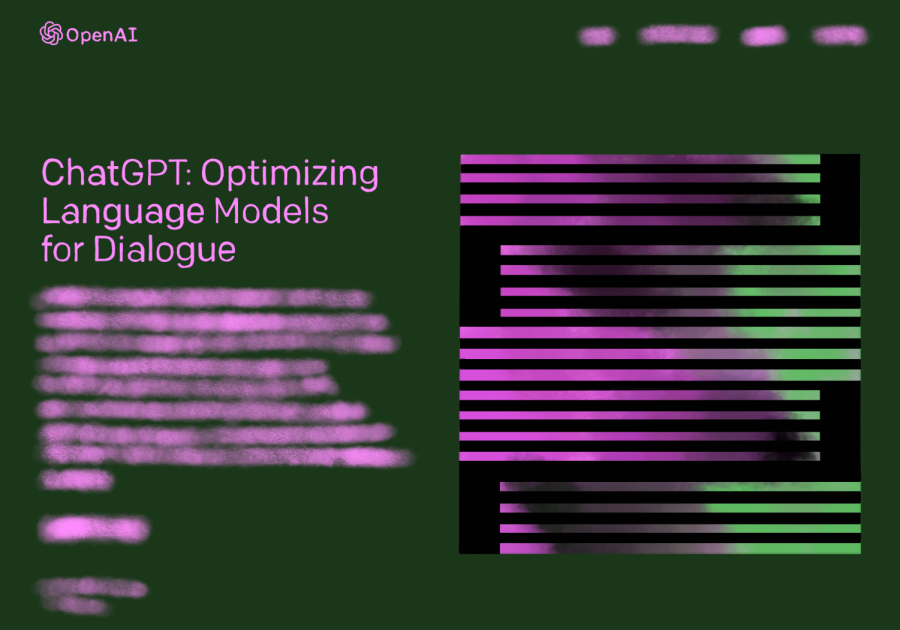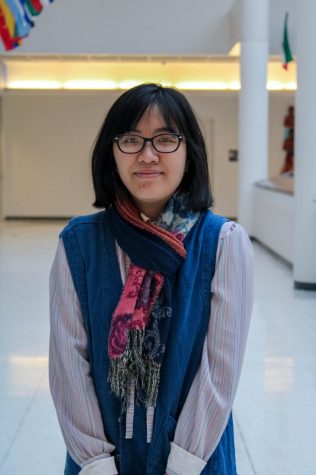Usage of OpenAI’s ChatGPT sparks controversy
February 20, 2023
ChatGPT was released by the company OpenAI on Nov. 30, 2022. GPT stands for Generative Pre–trained Transformer.
The new artificial intelligence allows users to input prompts in plain language and generate outputs that include but are not limited to essays, books, images and videos. The usage of ChatGPT was estimated to be in the millions in the month of December 2022.
The AI enables users to generate prompts with ease.
OpenAI has stated that ChatGPT does not know everything and while it is capable of recognizing patterns in human works, it can still generate wrong answers.
For example, when it was given a business school test by the Wharton School at the University of Pennsylvania, ChatGPT made numerous errors in sixth grade level calculations. ChatGPT was still able to pass with a grade of B as the AI was able to correct itself with appropriate hints from the human testers.
In accordance with OpenAI’s values “to ensure that artificial general intelligence (AGI)—by which…highly autonomous systems that outperform humans at most economically valuable work— benefits all of humanity,” ChatGPT states it does not take requests that are discriminatory in nature as well as illegal activities.
Kenneth Goldman, a programmer at Google, tested ChatGPT on the United States Medical
Licensing Examination, the Multistate Professional Responsibility Examination, the Law School Admission Test, the New York state high school chemistry exam and a bar exam where it managed to score 70%, 60%, 40th percentile, 78% and 70% respectively.
Software writing is another skill the AI can complete — within limits as it will sometimes mess up on programming concepts. In a Twitter thread, programmer James Blackwell described that it was able to parse regular expressions, stating ChatGPT was “just like having a programming tutor on hand 24/7.”
ChatGPT is making headways to many fields, including the classroom. While the AI itself said that using it for school papers is not appropriate, students have taken to using ChatGPT to write essays or to complete assignments, leading to bans being imposed by various schools and colleges, reasoning it to be cheating and plagiarism.
Professors at Baruch College have taken to warning against the use of ChatGPT in their syllabi, though it remains unknown as to whether a blanket ban on the AI will be issued.
Although students have been the biggest users of ChatGPT, instructors have begun to incorporate the AI as well.
Computer science teacher Maria Shuman at the Young Women’s Leadership School in New York City conducted a class using ChatGPT as part of a learning experiment. Students complained that the quality of the material given by the AI was more biased and of lower quality than a human teacher.
The lesson around wearable tech “reminded me of the fourth grade,” described one student.
Despite these shortcomings, ChatGPT has been able to show an understanding of human creativity with a reasonable impersonation.
Associate professor Dustin York of Maryville University, who sees potential in the use of AI as a learning tool, remarked that the attitudes to ChatGPT are similar to how educators “thought that Google, Wikipedia, and the internet itself would ruin education.”
The use of ChatGPT has additionally raised fears that AI will take away human jobs. Jobs ranging from programmer, accountant, marketing analyst, graphic designer, legal assistant and customer service agent risk being replaced by automated systems. Yet the aforementioned shortcomings have shown that using only a machine may have limits and that there is still value to having a human element in the output to smooth out any issues ChatGPT may have.
The investors of ChatGPT include Microsoft, Kholsa Ventures, Tiger Global Management, Y Combinator, Amazon Web Services and Bedrock.
Rival company Google revealed they have been working on a competitor titled Bard, planning to release it publicly within weeks. Google previously unveiled the Language Model for Dialogue Applications that was used to write Bard in 2021 — intending to integrate the AI with their search engine to compete with Bing’s planned integration of ChatGPT.
Though not without flaws, ChatGPT could have the potential to help humanity’s future.








